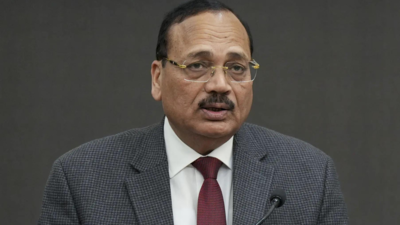
NEW DELHI: Indian judiciary has been instrumental in shaping the democracy’s moral spine by interpreting the Constitution’s textual commands in a way that gave vibrancy and dynamism to the country’s governance structure, said Justice Surya Kant, who will become the 53rd Chief Justice of India in Nov.Speaking to legal scholars and students in Seattle (US), he said in Kesavananda Bharti case, SC established the ‘basic structure doctrine’, which elucidated that while Parliament could amend the Constitution, it could not alter its fundamental identity.Justice Kant said, “When courts act to empower the powerless, grounded in constitutional text and moral clarity, they do not usurp democracy – they deepen it.”While judiciary’s proactive stance has often filled legislative or executive voids in advancing rights and justice, it has also, at times, drawn criticism for encroaching upon policy domains traditionally reserved for elected branches of govt, he said. “This tension invites a deeper inquiry into the legitimacy and limits of judicial intervention in a constitutional democracy,” he added.He said principles such as the Rule of Law, Separation of Powers and Judicial Review were deemed unamendable. This doctrine, unprecedented at the time, was rooted not in textual literalism, but in an ethical reading of democratic continuity, he said.He juxtaposed the Bharti judgment with the infamous ADM Jabalpur case, in which during emergency SC had acquiesced to the govt’s draconian diktat “no right available to citizens”, and said it was only following the Maneka Gandhi case, immediately after the end of Emergency, that the true expansion of rights happened through SC’s interpretative exercises.“In this period, SC has reaffirmed the supremacy of the Constitution and underscored that its foundational values, especially those relating to life and liberty, are inviolable and beyond compromise,” Justice Kant said.Explaining judicial independence, he said it encompasses the ability to have intellectual and moral independence, that stretches beyond mere institutional autonomy.“The underlying purpose of the independence of the judiciary is that judges must be able to decide a dispute before them according to law, uninfluenced by any other factor,” he said, addingit is ingrained in the system ,” he said.














